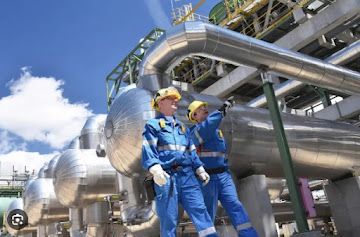Water repellent chemicals play a crucial role in enhancing the performance, safety, and longevity of automotive and marine surfaces. From protecting vehicle exteriors and interiors to safeguarding marine vessels and structures from water-related damage, these specialized chemicals offer durable and effective solutions for demanding applications. In this article, we'll explore the various uses and benefits of water repellent chemicals in automotive and marine applications, as well as the innovative formulations driving advancements in these industries.
Exterior Protection for Automotive Surfaces:
Water repellent chemicals are widely used in automotive coatings, sealants, and treatments to provide durable protection against water, dirt, and environmental contaminants. Exterior surfaces such as paint, glass, and trim benefit from hydrophobic coatings that repel water droplets, preventing water spots, streaks, and corrosion. These coatings also facilitate self-cleaning properties, allowing dirt and debris to be easily rinsed off during rain or washing, resulting in a cleaner and more visually appealing finish.
Improved Visibility and Safety:
In automotive applications, water repellent chemicals are commonly applied to windshields, windows, and mirrors to improve visibility and safety in wet weather conditions. Hydrophobic coatings on glass surfaces cause rainwater to bead up and roll off quickly, reducing the need for windshield wipers and enhancing driver visibility. This not only improves driving comfort but also enhances safety by minimizing the risk of accidents caused by obscured vision during heavy rain or snowfall.
Protection for Interior Surfaces:
Water repellent chemicals are also used to protect interior surfaces of vehicles, including upholstery, carpets, and leather trim, from water and liquid spills. Hydrophobic treatments create a barrier that repels liquids, preventing them from penetrating the fabric or causing stains and odors. This helps to maintain the cleanliness and appearance of the interior, prolonging the lifespan of upholstery and enhancing the resale value of the vehicle.
Corrosion Prevention in Marine Applications:
In the marine industry, water repellent chemicals are essential for protecting marine vessels, equipment, and structures from corrosion and degradation caused by exposure to saltwater and moisture. Specialized marine coatings and sealants containing corrosion inhibitors form a protective barrier that repels water and prevents the formation of rust and corrosion on metal surfaces. These coatings are used on hulls, decks, fittings, and other marine components to extend their service life and reduce maintenance costs.
Enhanced Performance and Efficiency:
By incorporating water repellent chemicals into automotive and marine applications, manufacturers can improve the overall performance and efficiency of vehicles and vessels. Hydrophobic coatings reduce drag and friction on surfaces, resulting in smoother airflow around vehicles and increased fuel efficiency. In marine applications, water repellent coatings on hulls reduce frictional resistance in water, allowing vessels to glide through the water more efficiently and achieve higher speeds with less fuel consumption.
Conclusion:
Water repellent chemicals play a vital role in automotive and marine applications, providing durable protection against water damage, improving visibility and safety, and enhancing the performance and efficiency of vehicles and vessels. From exterior coatings and treatments to interior treatments and corrosion inhibitors, these specialized chemicals offer versatile solutions for protecting surfaces and materials in demanding environments. As research and development continue to drive innovations in water repellent technologies, the future holds promise for even more advanced and sustainable solutions for automotive and marine applications.

Comments
Post a Comment